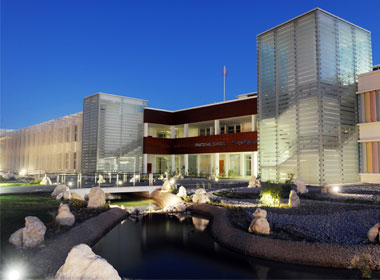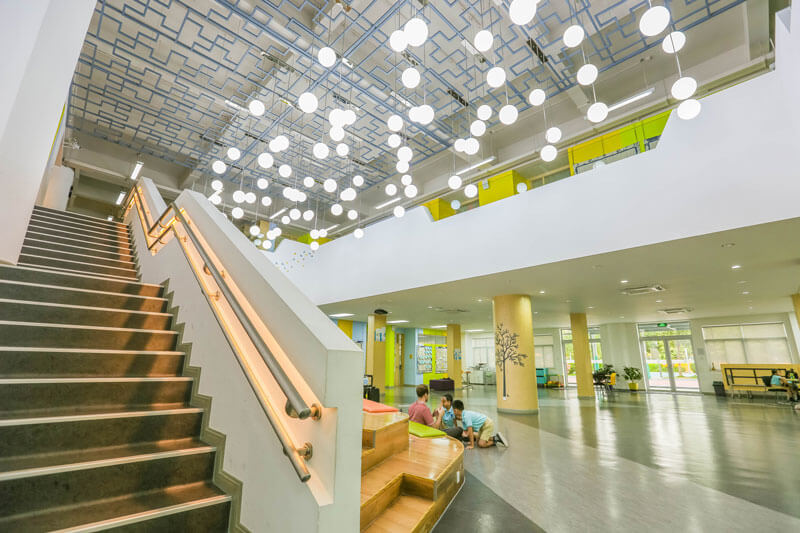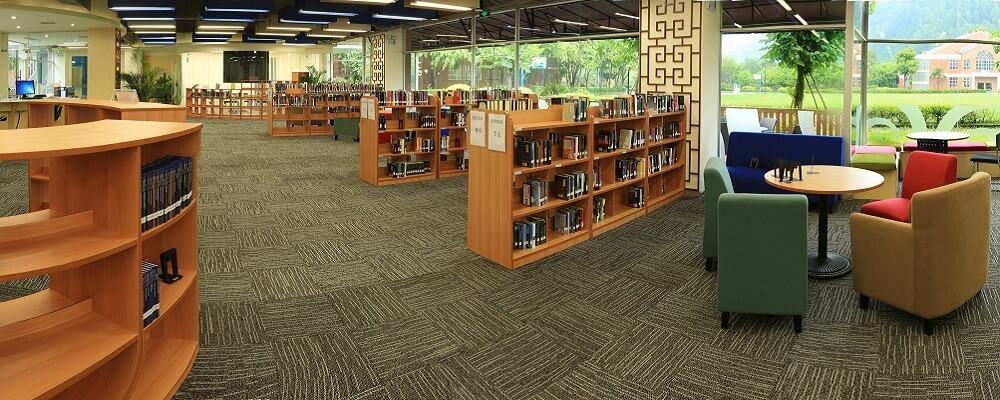12 Key Questions to Ask When Starting a School
December 02, 2021
Dick Moore
Senior Leadership Executive
Review the top 12 questions to answer before starting a school. With these questions answered, the scope of your school will come further in to focus. ISS is always available to help you in starting a school no matter what stage of the process you’re in. We are proud of our track record and relationships, and appreciate the opportunity to discuss possibilities with you. If you’d like more information on how to start a school, please contact us so that we may arrange a telephone or Skype call.
While there are many things to consider before opening a school, these questions will get you started on your path to starting a school.
1. What curriculum should the school adopt to meet the needs of students?
Owners and sponsors have several to choose from. Factors to consider include what kind of learning experience you want your children to have, where they will want to attend University and costs. International Baccalaureate (IB) for example, is often preferred by the school where a strong curricular coherence is desirable.
The cost of implementing the IB curriculum is higher and it requires strict adherence to professional development courses for educators.
The American Program is more flexible in terms of course selection for students. It is also less expensive to implement. Both programs, if implemented well, will be rigorous academically.
Oftentimes, international schools run an American program in the early grades, but offer a blended IB/AP choice in High School to give their students more options. There are also new and different curricula to explore. ISS will partner with you to discuss your options. If not earlier, ISS facilitates an in-depth discussion on this topic during the “Vision-Consensus” Process, so that you can gauge your options and make the right choice for you.
2. Will the school be a neighborhood school, day school, or boarding school?
While planning for your international private school, it is important to know how each school will serve its community. Schools that are closely associated with the local community are known as neighborhood schools. Typically, these schools are in such proximity to the neighborhood that students may walk to school.
Most neighborhood schools serve younger students. If the proposed school is intended draw families to a residential community being developed concurrently with the school, this would be a neighborhood school. The identity of the school would be closely tied to the residential community.
Most international schools are day schools. Students attend school during the day and return home in the afternoon. Students could be drawn from all over the city, but they commute to school.
Some international schools are boarding schools. Two models of boarding are common. Some boarding programs draw from a nearby urban area sufficiently far to make daily commuting unrealistic. These students spend the weekend with their parents returning to the school to board during the week. The more traditional boarding programs draw from very large regions making any form of commuting unrealistic.
In addition to specialized boarding facilities, food services and medical services must also be provided. Boarding programs also have trained pastoral and supervisory personnel to care for the students outside of the classroom.
3. How big will the school be in terms of enrollment?
New schools grow over time.
It’s important to know the intended capacity of the new school and how enrollment will grow from the first year to the year capacity is reached. Enrollment projection must be carefully thought out (see the market demand question below). Our experience aligns to the research that indicates that large schools do not function as well as small schools. For very large schools (in the thousands), ISS would always advocate breaking the school up into schools within the school.
A school that is too small will always struggle to generate the resources that enable delivery of a fully 21st Century education for their students. This is particularly true for high school students enrolled in IB or AP classes.
4. What is the market demand for the school?
Market demand is a very important question, and you should consider this before taking the next step.
- What are the existing international schools in the area?
- How do you know they are not sufficient for the demand?
- What unique features of your proposed school distinguish it from others in the market?
To assist with these questions, ISS makes an initial visit to your location and conducts interviews with local stakeholders including parent groups, local government, chamber of commerce representatives, and others.
While this trip takes planning and coordination, the up-front effort pays off when our representatives submit a feasibility analysis following the trip, so that important decisions can be made and a consensus around the school vision is solidified.
Want More Information on Starting a School?
See how ISS can help make your vision for starting a school a reality.
5. What grade levels will be taught?
This question is answered only after the type of school, size of school, and curriculum of the school are considered. Often the projected growth of the school dictates beginning with younger students and growing over time into a full K-12 school. Sometimes schools emphasize early childhood programs because that is most sought after by the community.
6. Is this a profit or non-profit school venture?
As private schools, international schools have the option of being for-profit or non-profit.
The success of a school is not dictated by the profit status of the school venture.
Good schools result from good management principles.
That’s why ISS is dedicated to solid, best practice school management principles. One of those principles is that a “quality product sells”. A poor school product is one that does not fund a quality educational program.
We understand that some schools involve investors and the investments can be significant. We believe that under the right circumstances those schools choosing to be profitable can be. ISS believes a school can be profitable and still meet our goals driven by our mission.
7. How much financing is needed to purchase the property and build the school?
The property cost is highly variable from location to location, country to country. The cost of property does not only involve the purchase price or the lease. It also includes the cost of developing the property including, but not limited to, site leveling, utilities, access roads, and applications for government approvals.
The cost of the school buildings and plant are easier to predict if you know the projected maximum number of students in each school division, i.e. elementary, middle, and high schools. Depending on the size of the building, the cost of a modern, international quality school can be in the tens of millions of US dollars.
Let ISS provide the necessary cost projections to secure your financing.
8. Will the school be educating host country students, expatriate students, or a combination?
The nationality of your students is important. Host country students may have national curriculum requirements. Expatriate families will expect their students to have access to international curriculum. In either case, a special license to operate may be required by the government authority.
9. How difficult will it be to obtain a license to operate as a school?
Obtaining the necessary license or licenses can often be difficult and time-consuming. Ministries of Education and Labor have their own guidelines and requirements for evidence/proof including curriculum for each grade and work permits for foreign teachers. ISS has the experience to assist the client with the application process.
We have years of experience in preparing the right documentation in a wide variety of countries around the world. We also have a Compliance Department that will provide specialized guidance on matters of law.
10. Has property for the school been acquired?
Of the three important steps required to proceed in any school project (government approval to operate, financing, and property) the property may take the longest. ISS can assist the client in identifying potential school properties as well as evaluate presently owned properties for their value as a school site.
11. Is the proposed school property large enough to accommodate the school program?
There are many formulae for determining the size of the school site, but a general rule is 40,000 sq. meters + 4,000 sq. meters for every 100 students enrolled. (Example: School Capacity = 600; therefore, the required site area would be 40,000 + (4,000 X 6) = 64,000 sq. meters). This would be net area, which is the result of the gross property area minus losses for steep slopes, odd boundaries, wetlands, rocky outcroppings, and enforced property setbacks.
The campus plan – placing the school buildings on the property – will be the responsibility of ISS education planners in consultation with the client’s architects. If you don’t have an architect, ISS can secure and/or oversee one for clients as an additional service.
12. What will be the prospective tuition for the school?
Tuition for most international schools range from $20,000 to $30,000 US dollars per year. This tuition must be approved by the local Education Ministry. ISS knows that the proposed school’s tuition must fit the needs of the community and the likely market of schooling in the area. ISS will assist you in taking a reasonable approach to tuition and other fees.
When ISS makes its initial visit, we collaborate with the client and reach consensus on expectations regarding facilities, staff compensation, class sizes, and quality of education program. From this “vision consensus” we prepare a budget that includes the most likely tuition scenarios.
ISS is privileged to hear from numerous people around the world who contact us because they want to begin exploring possibilities for opening a high-quality international school in their location. We know people come to us because ISS has been in the business longer than anyone, because our expertise and support helps clients accelerate through common challenges with the best solutions, and because of our attention to service and quality. If you’re looking for more answers on how to start a school, do not hesitate to start a conversation with us today!











